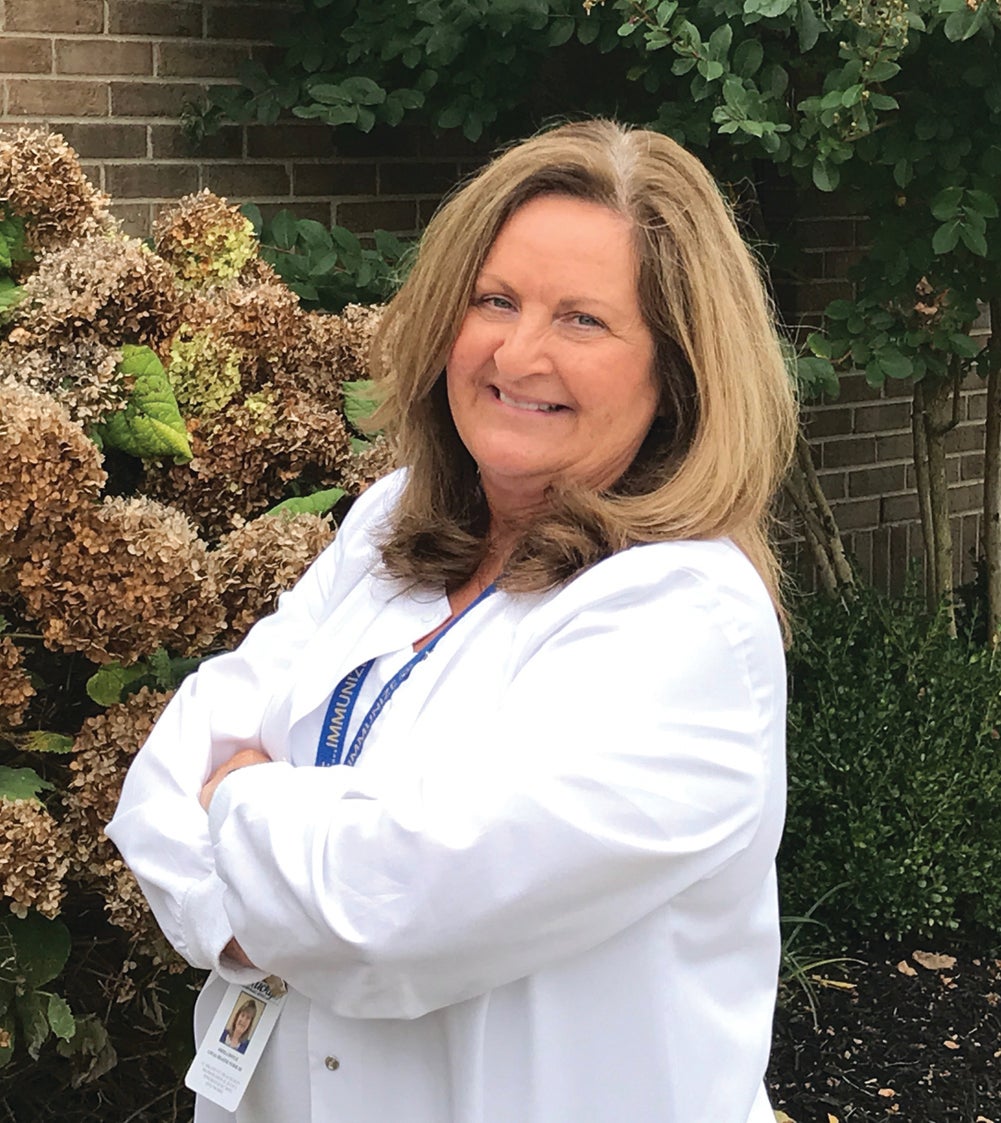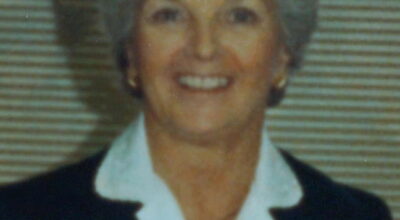Meet Your Neighbor: Doyle meets variety of needs at health department
Published 9:37 am Thursday, October 10, 2019

- Sheila Doyle
October brings focus and attention to breast cancer awareness through a number of programs and events.
The Clark County Health Department offers services through the Kentucky Women’s Cancer Screening Program, which clinical nurse Sheila Doyle oversees at the department.
Doyle recently spoke with the Sun about how the program works and who can take advantage of its services.
Winchester Sun: How long have you worked at the health department?
Sheila Doyle: I started my career with the Clark County Health Department in the Clark County Home Health agency division.
I was a nurse there also and was a case manager for doing home visits with patients requiring skilled services such as a nurse, physical therapist or an occupational therapist.
I worked there until October 2006.
I took just a little breather and decided to get back into the nursing services here at the Clark County Health Department in the clinic.
I was offered a position to be a clinic nurse. Those duties include a vast array from immunizations for children and adults, STD services, TB surveillance, also family planning and cancer screenings …
I am the nurse case manager for when those patients come through our office and need those (cancer screening) services, then I follow through on their cases, making sure their mammograms are scheduled.
Depending on what type of screening they need, whether they need a screening mammogram or a diagnostic mammogram, and any follow-ups with further diagnostics such as an ultrasound or evan a biopsy, getting those ladies scheduled to see a surgeon for a consult if they ever find anything abnormal with a screening or a breast exam.
WS: How has the program changed since you have been involved?
SD: It’s still offering women age 40 and older with their routine mammogram…
There are women sometimes who come through our department that have breast symptoms and they may be younger than 40.
We have a program called the Kentucky Women’s Cancer Screening Program that covers the cost for getting those breast services covered if you are uninsured or have Medicaid. You can come to the health department and get those services.
Let’s say you are a young woman of 25 and you’ve come here to get family planning services, to get your pap smear, maybe some birth control and getting your well woman check done. We’ve discovered something during the breast exam that will need, at that age, an ultrasound, and you’re uninsured. The Kentucky Woman’s Cancer Screening Program provided your local health department with funds to be able to get the diagnostic workup that young woman would need. That would be an ultrasound and a follow-up with a surgeon. Not because they’re going to have surgery, but they are breast tissue experts.
We want that evaluation to insure what that patient will need, whether its further diagnostic work up or a surgical intervention for whatever was found to be wrong.
Often its something benign. It could be pre-cancerous or cancerous. There are options for that woman to get the care and treatment she is needing.
The earlier problems are detected, the better the outcome that our women will have.
Most women … find problems on their own. By learning what their breasts look like and what they feel like and to know that they have options to get that evaluation.
I see it, the longer I’ve worked here, we have a lot of folks who are uninsured or can’t afford the health insurance. They neglect their care, just because of the financial obligation of it. The health department is a wonderful resource for getting that breast screening done.
WS: It seems in the last 20 years or so, there’s been a huge public awareness push. It is everywhere. Have you seen more women come in and ask to be screened?
SD: That is the first tool, women being aware of the symptoms of breast changes. People think it’s just a lump. It can be skin changes or what we call inversion of the nipple.
It’s being aware of your body and knowledgable of the structure of your breast… knowing something doesn’t feel right and they need to be evaluated.
To be eligible (for the Kentucky Women’s Cancer Screening Program), you have to be a resident of Kentucky, be uninsured or have Medicaid, and meet income guidelines. It’s a guideline set by the state, not the health department’s guideline.
It’s a pretty easy program to meet qualifications for. Either you can get that mammogram at zero cost or a nominal cost.
WS: Do you get many men who come in and ask for screenings?
SD: Unfortunately, the Kentucky Women’s Cancer Screening Program is for women, but there are resources.
There are federally qualified health care centers. We don’t have one in Clark County but there are FQHCs that service people in Clark County. Two are in Fayette County and one of them is just to the east of us in Montgomery County.
If you’re a man who is uninsured and has that issue, we can give you the resource information. There are options for men to at least get a health care provider to see them.
WS: How many women will typically request a screening in a given month?
SD: We have a nurse practitioner who is here two to three times a month. Every woman 20 and older will get that breast exam, but not everyone 20 to 39 will need an ultrasound or mammogram.
Every woman 40 and older will be scheduled for a screening mammogram or a diagnostic mammogram depending on what the outcome is.
We can average anywhere from 10 to 20 mammograms a month. It just depends.
It’s that age group that comes in. We saw when more people qualified with the Medicaid option, they were able to establish with their own physician. We want people to go to their primary health care providers and get all their screenings.
A lot of our folks are uninsured. They come in and this is what we do.
Sometimes we may get a phone call from someone who is new to the area and may not know what we do. We have a great partner with Clark Regional Medical Center, which is who we refer to for our screening mammograms and our diagnostic workups.
Winchester General Surgery is the other partner we contract with to do our evaluations for women who will need that further medical expertise.
They’ve been wonderful. I can’t say enough about the staff at the diagnostic center. They are compassionate, they are attentive.
Then Dr. (Rebecca) Bartee and Dr. (Murielle) Brohaz …They take great care and provide a service to the women we send their way.



